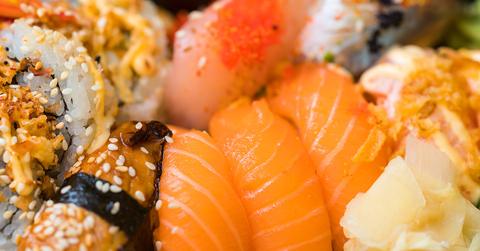Transitioning To Sustainable Seafood? These Are The Most Eco-Friendly Fishes
Luckily for all you seafood lovers, there are plenty of fish in the sea. The oceans are teeming with varieties of fish you can consume without contributing to an oceanic crisis, and they're generally healthy, to boot.
Updated May 26 2019, 2:38 p.m. ET
The debate is still out on whether humanity will destroy the planet’s oceans by overfishing, pollution, or the spreading of invasive species. None of these options bodes well for environmentalists—or seafood lovers. Fortunately for the latter, there are ways to eat seafood sustainably that don’t involve you developing a taste for lionfish. In fact, according to a multitude of scientists, there are many varieties of fish you can consume without contributing to the oceanic downfall so many environmentalists are trying to avoid.
Lifehacker did the legwork to aggregate information from the Monterey Bay Aquarium Seafood Watch list, the Marine Conservation Society, the Blue Ocean Institute, the Marine Stewardship Council, and the Environmental Defense Fund to provide the public with oceanic species you can eat without worrying too much about the environmental repercussions.
First of all, avoid eating these types of fish.
The way these creatures are being hunted and caught is causing all kinds of issues for fellow species, the numbers of these guys in the wild, and hurting the environment. Do your best to avoid the following:
Okay, that might seem like a lot of fish you can’t order at your next sushi-dinner outing. But consider the bind we’ll be in if the overfishing and unsustainable farming methods continue.
Many people assume that farm-raised means these fish are better for the environment. But as is the case with farm-raised yellowtail, the fish are often overfed, under exercised, and produce very high levels of waste in a very concentrated area. And then there’s the whole red tide issue… Don’t worry—there plenty of options left!
Here are the most sustainable fish you can eat.
Here’s Lifehacker’s aggregated list of the planet’s most sustainable, ethically neutral fish to consume.
Of course, these lists are subject to change—and hopefully in favor of those who like to eat the fish on the “don’t eat” list. Just remind yourself this is a temporary situation, and that you’ll be belly up at the sushi bar downing yellowtail and Bluefin in no time.
